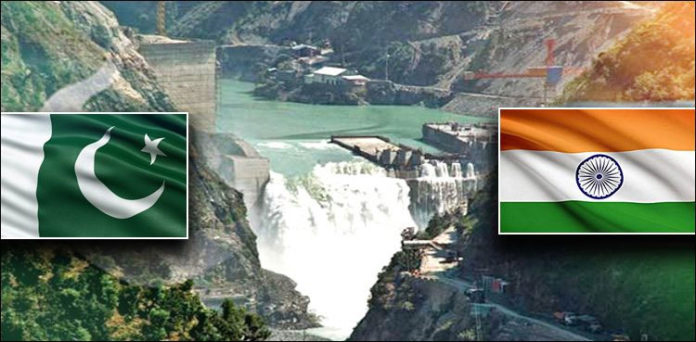
Early Times Report
Jammu, Apr 24: In a decisive shift, India has asserted its right to suspend the Indus Waters Treaty (IWT) with Pakistan following the brutal terrorist attack in Pahalgam. The move comes despite objections from the Pakistani leadership and marks a significant escalation in India’s response to cross-border terrorism.
This is not the first time India has considered reviewing the IWT. The possibility was first floated in the aftermath of the December 13, 2001 attack on the Indian Parliament, carried out by Lashkar-e-Taiba (LeT) terrorists. At the time, the late Prime Minister Atal Bihari Vajpayee's government had raised the prospect of scrapping the treaty.
Now, nearly 24 years later, Prime Minister Narendra Modi has taken a step that previous wars could not bring about—placing the IWT in abeyance as part of a broader strategy to hold Pakistan accountable for its continued support of terrorism.
Suspending the treaty is one of five major punitive measures announced by the Modi government following the Pahalgam massacre. For years, Pakistan has consistently denied any involvement in terror attacks on Indian soil, despite overwhelming evidence of its role in supporting militant proxies, particularly in Jammu & Kashmir.
India’s shift in posture can be traced back to the 2016 Uri attack, after which Prime Minister Modi famously declared, “Blood and water can’t flow together.” That phrase, along with “Terror and talks can’t go together,” became symbolic of India’s hardened stance against Pakistan-backed terrorism.
Background of the Indus Waters Treaty
Signed on September 19, 1960, with the World Bank acting as mediator, the Indus Waters Treaty is considered one of the most successful water-sharing agreements globally. It governs the use and distribution of six rivers in the Indus system—Indus, Jhelum, Chenab, Ravi, Beas, and Sutlej—between India and Pakistan.
Under the treaty:
Western Rivers (Indus, Jhelum, Chenab) are largely allocated to Pakistan, though India retains rights for limited, non-consumptive use such as domestic consumption, irrigation, and run-of-the-river hydroelectric projects within defined technical parameters.
Eastern Rivers (Ravi, Beas, Sutlej) are allocated exclusively to India, granting full rights for use in agriculture, power generation, and industrial activities. Pakistan has no significant claim over these waters.
A Permanent Indus Commission, comprising representatives from both countries, oversees the implementation of the treaty, handles data exchange, and resolves disputes through regular dialogue.
Strategic Reassessment Since 2016
Following the 2016 Uri attack, India began a strategic review of the treaty—shifting from talk of cancellation to maximizing its legal and technical rights, particularly over the Eastern rivers. This included accelerating hydroelectric and irrigation projects allowed under the treaty to strengthen India's control over its allocated waters.
With the suspension of the IWT now officially part of India’s punitive response to terrorism, the decades-old water-sharing accord—long viewed as a rare example of Indo-Pak cooperation—has entered uncharted territory. |
